The aftermath of the Wallabies' Rugby World Cup final defeat by the All Blacks, and the ongoing envious peering toward our mates over 'the Ditch', has given many an Australian rugby consumer cause for reflection and prediction this week. We don't just mean reflection in the "what if the forward pass were called" sense, but rather reflection in the sense that it really does feel like there's good reason for optimism going forward. ESPN sat down to ponder of a few of the big questions.
Where will the Wallabies be in 12 months' time?
While there was a fair degree of "end of an era" commentary around the All Blacks' back-to-back Rugby World Cup titles, with the pending departure and/or retirement of a number of long-serving players and at least a couple of once-in-a-generation players, it really doesn't look like the Wallabies will experience a lot of player turnover going forward.
Toulon-based Matt Giteau and Stade Français-bound Will Genia have either hung up their international boots, or expressed a likelihood that the final was their last match in the Wallabies jersey.
Sekope Kepu signed with his French club, Bordeaux-Begles, alongside Wallabies team-mate Adam Ashley-Cooper before the Australian Rugby Union introduced its 'Giteau's Law' selection policy; he has made noises about heading to France in order to spend more time with his family, but he has not yet made a call on whether he's leaving the Wallabies door open in 2016. Ashley-Cooper, meanwhile, went to great lengths after the final to say that he certainly hadn't called time on his international career, even suggesting that World Cup final defeat was not the way he wanted to end his time in Gold.
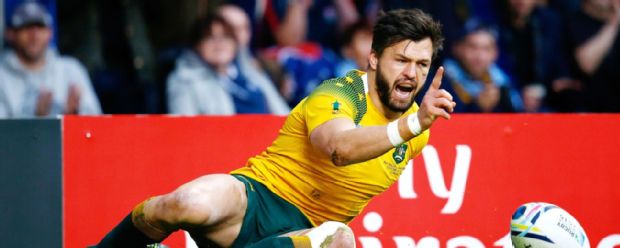
James Horwill, already playing with Aviva Premiership club Harlequins, remains eligible going forward, though former Queensland Reds team-mate Quade Cooper - unveiled this week at Toulon, but with Olympic Sevens clauses in place - remains stuck on 58 Tests. Quite how Wallabies coach Michael Cheika can deliver on his stated intent to keep Cooper playing for the Wallabies will be interesting to observe.
Of the players remaining in Australia after RWC2015 and beyond, retirement may be getting close for a few players but won't be immediate. Having played his 100th Test during the tournament, Wallabies captain Stephen Moore will be 33 in January and should still have good year or two in him yet.
It's really only the likes of those players heading overseas with fewer than 60 Tests to their name who will be lost for the time being: Scott Higginbotham is already in Japan, and Nic White has been with Montpellier in France since just before the RWC started.
Sixteen of the 31 Wallabies players selected for the World were 26 years of age or younger, meaning they'll be no older than 30 come the 2019 tournament in Japan. Another five players in the current squad will be no older than 31 in 2019. So, even with a few new faces here and there, it's not at all inconceivable that the core group of current players can remain for a good few seasons.
Flexible contracts: good or bad?
The allowance for players to cash in over the Australian off-season with lucrative deals in France or Japan was actually introduced before 'Giteau's Law', and has seemingly been superseded by the change in policy regarding overseas-based players. But the flexible contracts will remain a drawcard for younger players.
Israel Folau, Bernard Foley, and Ben McCalman will all now head to Japan to play in the Top League, before returning to Australia around the start of the Super Rugby season. But what sort of state will they be in? Folau carried major injury concerns into the Semi and the Final, and will need some rehabilitation time before pulling on the NTT Docomo Red Hurricanes jersey. Foley and McCalman are both coming off a long Australian season, had a hectic RWC, and will now undertake a full Japanese season.
It will be really interesting to see just how much petrol these three have in the tank come March or April. The Waratahs, in particular, have the most to lose, with Foley and Folau absolutely crucial to their ongoing success. And that's before we even think about the Wallabies' three-Test series against England or Bledisloe Cup and Rugby Championship campaigns.
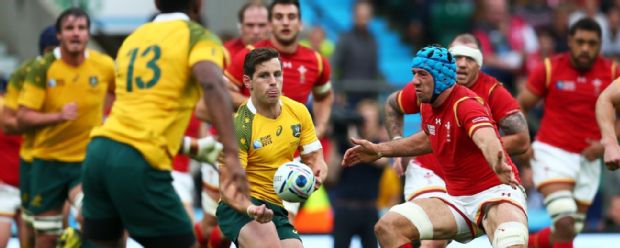
Can the Cheika game plan be sustained?
It might just be the biggest challenge for Michael Cheika the coach. Over the course of the World Cup, we saw teams using varying tactics to nullify the Wallabies' game plan, and with varying degree of success. Certainly, New Zealand's ploy in the final of playing away from the central defensive channels occupied by David Pocock was effective, which in turn opened new opportunities to exploit the Wallabies' defence on the edges.
Folau's lack of a properly developed exit-kicking game means teams will continue to kick between him and Ashley-Cooper or whoever is on the right wing, which in turn exploits Foley's lack of length in general play, too.
The Wallabies' early World Cup success was built around set-piece dominance, yet the lineout had virtually disintegrated by the end of the tournament. This is something that will required concerted state and national co-ordination and buy-in to rectify, and only reinforces the earlier point about Australia watching as New Zealand gets on with improving their game "in the national interest".
If there's an upside, it's that Cheika at least doesn't have a Super Rugby side to manage now as well.
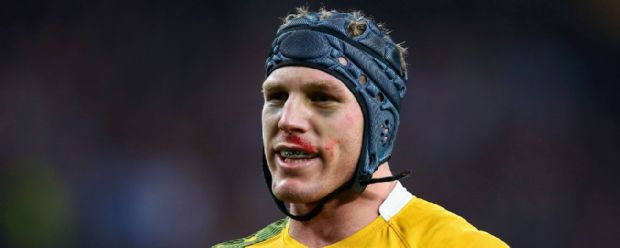
Second-row and back-row
Australian rugby is not short of options in the back-row, with the famed if terribly labelled (Sam Bruce!) 'Faroocock' trio of Scott Fardy, Michael Hooper, and David Pocock being one of the highlights of the World Cup. McCalman and Sean McMahon both did sterling jobs when called upon, too.
Back home, Liam Gill ripped National Rugby Championship rucks apart for fun, and the likes of Jordy Reid, Colby Fainga'a, Jarrad Butler and Ita Vaea will be looking to carry their strong NRC form through to Super Rugby and beyond.
The second-row is similarly well-blessed with options, and it will be intriguing to see how the Rob Simmons-Kane Douglas combination carries on for the Reds in 2016. The likes of Will Skelton, Sam Carter, Rory Arnold, Blake Enever, Luke Jones, Adam Coleman will all be pushing their claims, but lineout efficiency and accuracy in Super Rugby will push one team's players ahead of others if found quickly.
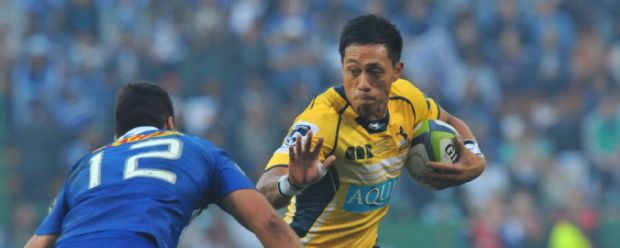
What's the midfield combination?
This could be the question needing to most urgent solution in 2016. Certainly a new scrum-half will be needed, with Genia unlikely to feature, and Nick Phipps is front and centre to reclaim the No.9. Depending on how Foley returns from Japan, the No.10 jersey could need some filling, too.
And what of the centres? Giteau won't be back to play inside centre, and Tevita Kuridrani, though he scored the try that put Australia right back into the final, didn't have the biggest impact on the World Cup.
That means the Melbourne Rebels' pairing of Nic Stirzaker and Jack Debreczini will certainly be in the frame. The Brumbies' Matt Toomua-Christian Leali'ifano 10-12 axis has to be a consideration, too. New centres may also dictate a new game plan, particularly if strong ball carriers such as Samu Kerevi or Mitch Inman enter the frame at 12. Both could equally challenge Kuridrani at 13, too, and Ashley-Cooper certainly can't be excluded, either.
And just because - names like Nick Frisby, Ryan Louwrens, Kyle Godwin, Tom English and Karmichael Hunt will undoubtedly form part of the debate, too.
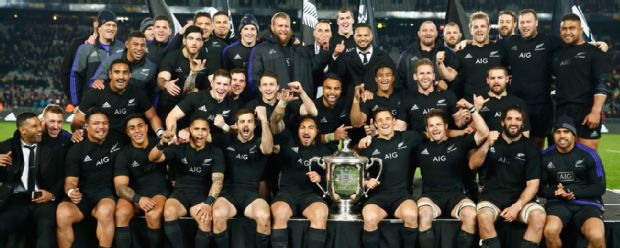
So, Bledisloe success in 2016?
Hmmm!
From the perspective that New Zealand will be without said long-serving and twice-in-a-generation players, you might have to say that 2016 may well be the Wallabies' best chance.
But as colleague Craig Dowd has pointed out, New Zealand are pretty bloody good at the regeneration game themselves, as it turns out.
Can the core group of Wallabies come together faster than the All Blacks' new combinations?
The teams' respective June series against England and Wales will take on all new levels of importance.
 One of the new breed of Australian online rugby writers, Brett McKay joins ESPNscrum.com having developed a popular presence on sports opinion site The Roar. He also tweets from @BMcSport.
One of the new breed of Australian online rugby writers, Brett McKay joins ESPNscrum.com having developed a popular presence on sports opinion site The Roar. He also tweets from @BMcSport.
- Punters rushing to back Jaguares for Super Rugby title
- Leadership key if young Blues are to succeed in Super Rugby
- Greg Growden: Expanded Super Rugby a convoluted mess
- Eddie Jones - Behind the iron mask of England's coach
- The wild and winding road that led John Mitchell to coach USA Eagles


 RSS Feed
RSS Feed